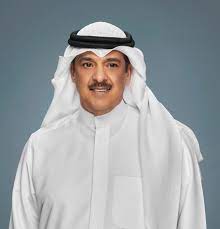The 2024 National Assembly elections, scheduled for April 4, are considered the second elections held during the holy month of Ramadan in Kuwait’s parliamentary history, Kuwaiti media figures noted. In interviews with KUNA, they noted that the first election held during Ramadan was for the 14th legislative term on July 27, 2013, whereas a by-election was also held during Ramadan in the 10th constituency on December 7, 2000.
The editor-in-chief of Al-Anbaa Newspaper, Youssef Al-Marzouq, said that the holy month of Ramadan has special rituals and traditions, and this is the second Ramadan to witness elections following the 2013 National Assembly elections. He added that, based on previous experience, fasting does not effect active participation in the democratic process, as the turnout in the 2013 elections held in July reached about 52 percent, although it was held during summer break and people were fasting.
He continued that the Kuwaiti voter is aware of the importance of taking part in the elections for the country’s higher interests, and it is no surprise that Kuwaiti citizens are committed to their national entitlement. He continued that the fatigue of fasting will not stop the Kuwaitis from performing their electoral and national duties, and voting will not have an impact on their worshipping and prayer rituals, stressing that Kuwait deserves their full commitment.



For his part, mass communications professor at Kuwait University (KU), Dr. Khaled Al-Qehs, said that due to the special rituals of Ramadan, social media play an important role in the electoral process for both candidates and voters. He added that many Kuwaitis prefer to be in the country with their families during Ramadan; therefore, it could result in a higher turnout on election day.
He stressed the importance of candidates directly connecting with their voters and focusing on creating a mature media message on social media platforms and establishing a unique campaign on news platforms. He noted that a well-planned media and electoral plan is required on election days by the candidates’ campaigns to encourage the participation of the voters.
Dheiran Aba Al-Khail, Secretary General of the Kuwait Journalists Association (KJA), said the voters were occupied at the start of Ramadan with social activities, which delayed the launch of campaigns for candidates. Candidates, he said, should urge all voters to participate in the upcoming elections and to vote for whoever they see will honor their aspirations. He said candidates should raise awareness among voters about the importance of what he considered “national duty.” Aba Al-Khail urged candidates to convey their messages through all kinds of media.
The Justice Ministry prepares
Meanwhile, the Ministry of Justice has formed a field team supervised by Undersecretary Hashem Al-Qallaf to prepare 123 schools to be premises for 764 polling stations for the upcoming National Assembly elections slated for April 4. Five schools would be allocated for the five main electoral committees and 118 schools for polling stations in the five constituencies: 16 for the first one, 18 for the second, 22 for the third, 28 for the fourth, and 34 for the fifth, the Ministry said in a statement. All polling stations would be headed by judges and prosecutors, it said, referring to preparing for all the needs of judicial authority members and heads of the polling stations.
KUNA


